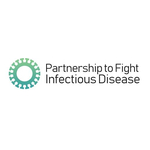Urgent public health needs demand passage of the PASTEUR Act
WASHINGTON–(BUSINESS WIRE)–#AMR—The Partnership to Fight Infectious Disease (PFID) has released new data, analysis and projections into 2035 on the human and economic toll of antimicrobial resistance (AMR), specifically related to hospital-acquired infections. The data show that treating people who acquired AMR infections in healthcare settings incurred costs of $5.8 billion in direct medical care and another $7.2 billion in economic losses relating to premature death. PFID worked with GlobalData Plc on the analysis, which has yielded both national and state fact sheets highlighting the impact of AMR, what’s truly at stake and policy opportunities, like the PASTEUR Act, to better address this increasing public health emergency.
An estimated 2.8 million antibiotic-resistant infections occur in the U.S. each year and more than 35,000 people die as a result. In addition to infections acquired in healthcare settings that put some of the most vulnerable patients at risk, like those battling cancer or other chronic conditions, AMR also challenges infection prevention, which is critical to everyday procedures like joint replacements and cesarean sections.
AMR is a threat to everyone, and the COVID-19 pandemic exacerbated the problem. A report from the Centers for Disease Control and Prevention found that in 2020 alone there was a 15% increase in hospital-onset AMR infections and deaths compared to the year before.
The data in PFID’s AMR analysis also shows that communities of color are at higher risk for hospital-acquired AMR infections and death. Black patients are 12% and Hispanic patients 24% more likely to die from a hospital-acquired AMR infection as compared to their white counterparts.
“The data in these fact sheets make it very clear that something must be done, and it must be done now,” said Candace DeMatteis, PFID’s Vice President of Policy. “We must loudly call for change and demand action from policy makers in passing the PASTEUR Act. This would create a more sustainable environment for antimicrobial R&D and commercialization and ensure a robust pipeline for future treatments, which are desperately needed as we day-by-day run out of options for effective infection prevention and control.”
By sharing facts on AMR in each state, PFID is looking to raise awareness of AMR and related issues and rally support across the U.S. around what can be done now to be better prepared. The PASTEUR Act will address the challenges in the antimicrobial marketplace and encourage the development of much-needed medicines to fight increasingly resistant bacteria.
This new research is part of PFID’s continuing work to advance awareness of the growing problem of AMR and to drive action for policy changes that address the threat AMR poses to global health. To learn more about the Partnership to Fight Infectious Disease, visit fightinfectiousdisease.org and follow us on Twitter @ThePFID and LinkedIn.
The Partnership to Fight Infectious Disease (PFID) is a group of patients, providers, community organizations, academic researchers, business and labor groups, and infectious disease experts working to raise awareness of threats posed by infectious disease.
Contacts
Media:
Jennifer Burke
301.801.9847
JenniferB@fightinfectiousdisease.org



